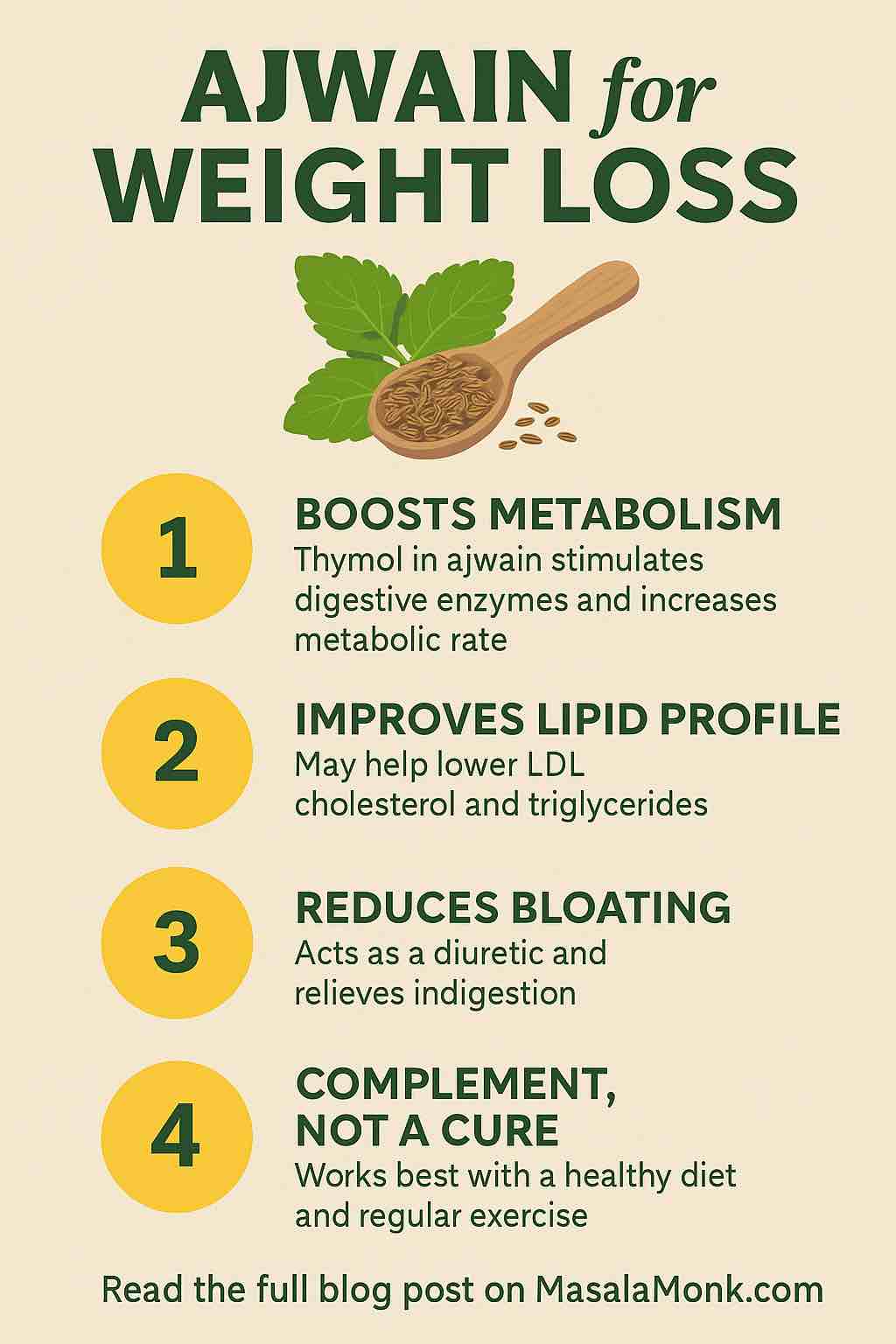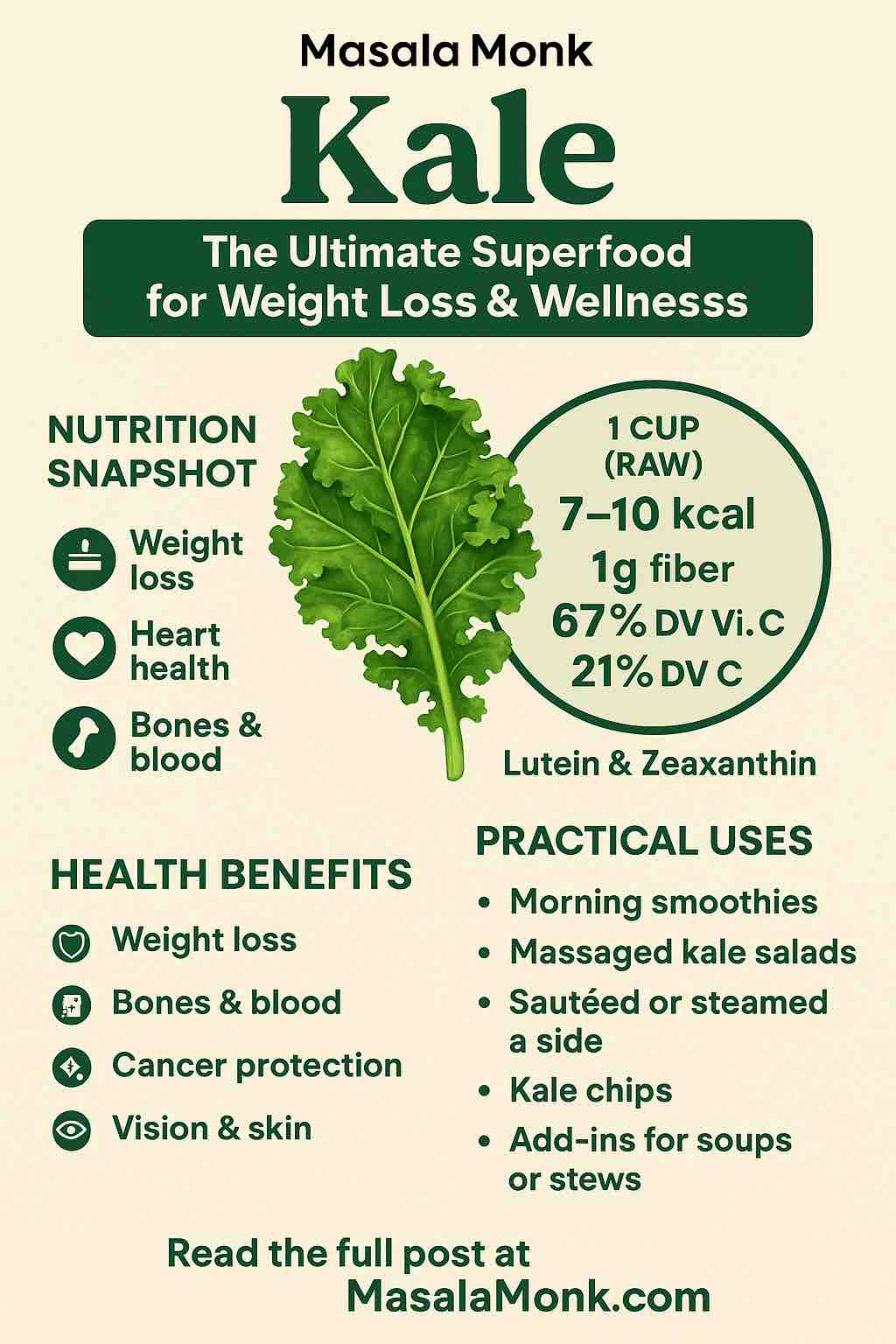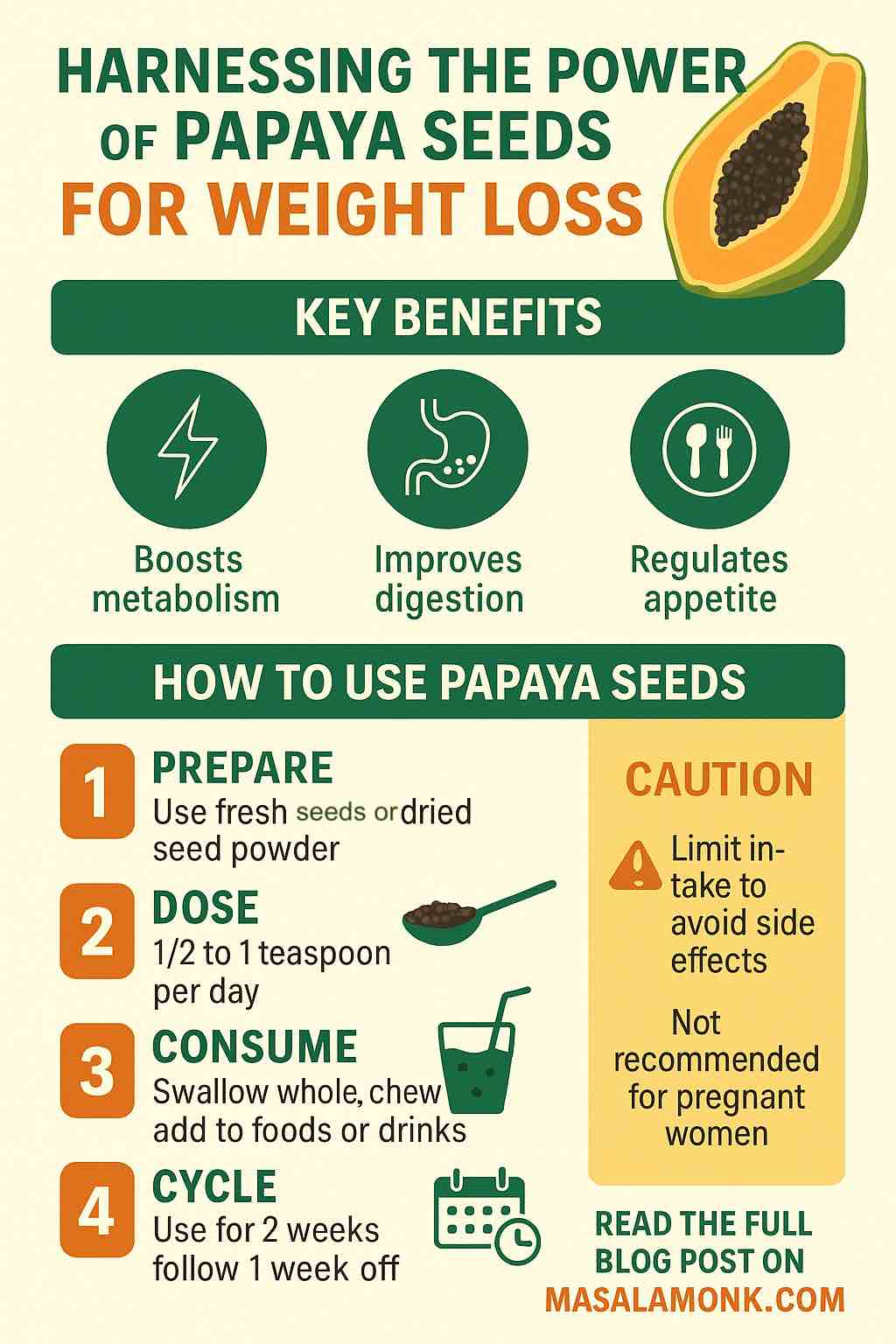
When it comes to natural remedies for weight loss, few ingredients are as overlooked yet as powerful as ajwain, also known as carom seeds. Packed with digestive enzymes and metabolism-boosting compounds, ajwain has been a staple in traditional Indian kitchens for centuries. But how does this tiny seed contribute to fat loss? And more importantly, how can you incorporate it effectively into your modern lifestyle?
In this detailed guide, we explore the science, the myths, the methods, and the practicality of using ajwain for weight loss in 2025.
✨ The Science Behind Ajwain
Ajwain (Trachyspermum ammi) is a pungent, aromatic seed loaded with active compounds like thymol, terpenes, and flavonoids. These compounds are known for their anti-inflammatory, antioxidant, and digestive properties. Here’s how they may help with weight loss:
1. Boosts Metabolism
Thymol in ajwain stimulates the production of gastric juices and digestive enzymes. This not only improves digestion but also enhances metabolic rate, helping your body burn calories more efficiently.
2. Improves Lipid Profile
Recent studies (2022-2025) show that regular consumption of ajwain tea (1 to 1.5 grams per day) can lower LDL cholesterol, triglycerides, and total cholesterol. Improved lipid metabolism is closely linked to better fat management and weight control.
3. Reduces Bloating and Water Retention
Ajwain acts as a mild diuretic and carminative. This can relieve bloating and water weight, which might otherwise mask true fat loss progress.
4. Suppresses Appetite and Cravings
Ajwain has appetite-suppressing properties, particularly when consumed in warm water before meals. This helps with portion control and reducing unnecessary snacking.
🌟 Latest Clinical Insights
A 2022 randomized controlled trial conducted in Pakistan showed that participants who consumed 1.5g of ajwain tea daily for 8 weeks had significantly lower BMI and cholesterol levels compared to the control group. Another recent anecdotal case from early 2025 featured a woman who credited ajwain-fenugreek water with helping her lose over 60 kg in a year, though this is best viewed as complementary to exercise and diet.
While these results are promising, experts caution that ajwain should be considered a supportive aid rather than a standalone solution.
🌮 How to Use Ajwain for Weight Loss
Here are some practical and safe ways to include ajwain in your routine:
1. Ajwain Water (Soaked Method)
- Soak 1 tsp of ajwain seeds in a glass of water overnight.
- Strain and drink it on an empty stomach in the morning.
2. Ajwain Tea (Boiled Method)
- Boil 1 tsp of ajwain in 2 cups of water for 8-10 minutes.
- Strain and sip warm before breakfast or lunch.
3. Ajwain with Lemon and Honey
- Add a dash of lemon juice and half a teaspoon of honey to ajwain tea.
- Enhances taste and provides additional detox benefits.
4. Ajwain Powder Mix
- Dry roast ajwain and grind into powder.
- Take ½ tsp with warm water before meals.
🔹 Combine with Other Seeds for Greater Effect
Ajwain works even better when combined with:
- Cumin (Jeera): Enhances digestion and reduces bloating.
- Fennel (Saunf): Acts as a mild appetite suppressant.
- Fenugreek (Methi): Helps control blood sugar and curb hunger.
Try a mix of these seeds soaked overnight and consumed in the morning for a holistic metabolic boost.
⚠️ Precautions and Who Should Avoid It
While ajwain is generally safe, it should be consumed in moderation:
- Limit to 1-1.5 grams per day.
- Pregnant or breastfeeding women should consult a doctor.
- People with ulcers, liver issues, or on anticoagulant medications should avoid high intake.
- Excessive use may lead to nausea or headache.
🚀 90-Day Ajwain Protocol for Beginners
| Week | Morning Drink | Notes |
|---|---|---|
| 1-4 | Ajwain water | Focus on consistency and portion control |
| 5-8 | Ajwain + Cumin/Fennel | Add mild morning exercise |
| 9-12 | Ajwain tea with lemon | Include clean eating and track progress |
📈 Final Word
Ajwain offers a powerful, science-backed tool to support your weight loss journey. It enhances digestion, regulates lipids, and suppresses appetite, all with minimal effort. While not a miracle cure, when combined with a calorie-conscious diet and active lifestyle, it can make a noticeable difference.
Use it wisely, stay consistent, and always listen to your body. Let ancient wisdom meet modern health goals—one seed at a time.
Have you tried ajwain for weight loss? Share your experience or questions below!
1. Can ajwain alone help me lose weight?
Answer: No, ajwain is not a magic bullet. It supports weight loss by improving digestion, metabolism, and lipid profile—but it must be combined with a balanced diet and regular exercise for meaningful results.
2. How long does it take to see results with ajwain water?
Answer: Some users report feeling less bloated within a few days, but noticeable fat loss typically requires 4–8 weeks of consistent use alongside lifestyle changes.
3. What is the best time to drink ajwain water for weight loss?
Answer: The most effective time is first thing in the morning on an empty stomach. This maximizes its digestive and metabolic benefits.
4. Can I take ajwain at night instead of in the morning?
Answer: You can, especially if you’re experiencing indigestion or bloating after dinner. However, the morning is still considered most effective for metabolic activation.
5. Is it safe to take ajwain daily?
Answer: Yes, ajwain is safe when consumed in moderate amounts (1–1.5 grams per day). Long-term, overuse may lead to side effects like nausea or heartburn.
6. Can pregnant or breastfeeding women take ajwain?
Answer: It’s best to avoid ajwain during pregnancy or lactation unless advised by a healthcare provider. Ajwain is known to be strong and may stimulate uterine activity.
7. Can I combine ajwain with other herbs or seeds for better results?
Answer: Yes, ajwain works well with cumin (jeera), fennel (saunf), and fenugreek (methi). These combinations enhance digestion, reduce cravings, and support hormonal balance.
8. Can I eat ajwain seeds directly instead of drinking the water?
Answer: You can chew ½ tsp ajwain after meals, but water or tea preparations are better absorbed, especially when taken on an empty stomach.
9. Will ajwain help with belly fat specifically?
Answer: Ajwain helps reduce bloating and water retention, which can visually reduce belly size. True fat loss depends on overall calorie balance and activity.
10. Are there any interactions with medications I should be aware of?
Answer: Yes. Ajwain may interfere with anticoagulants, antacids, or liver medications. Consult your doctor if you’re on long-term medication.













